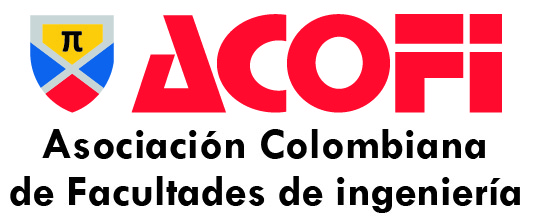The impact of the industrial engineer on the environment
DOI:
https://doi.org/10.26507/rei.v5n9.19Keywords:
lean manufacturing, supply chain, waste.Abstract
The evolution is directly related to adaptive changes of people according to the environment. Technologically it has been given in order to exploit resources efficiently to obtain raw material in less time, which has led to a negative evolution in the environment, creating a need to preserve it. Industrial engineers are the articulators of society-enterprise because they are responsible for optimizing resources to produce more products and services to be socialized into the community. They Have been who have had more contact with practices aimed to reduce waste, seeking the perfect flow of goods and services and reducing costs, but this also impacts in a positive way the environment due to reduced consumption of resources. This article discusses the management of the supply chain as a path to positively impact the environment while guiding organizations to a culture of zero waste.Downloads
References
Darwin, C. (1859). El origen de las especies por medio de la selección natural. Editorial John Murray, Londres, pp. 3-21
Sagan, C. (1997) Billions and Billions: Thoughts on life and death at the brink of the millennium. Editorial Random House, Estados Unidos, pp. 76
BBC de Londres. (2001). Bumblebees could face extinction. Consultado el 15 de agosto de 2009 en http://news.bbc.co.uk/2/hi/science/nature/1314012.stm
North American Plant Protection Organization (2008). Normas regionales de la NAPPO sobre medidas fitosanitarias (NRMF número 29). Consultado el 15 de agosto de 2009 en http://www.nappo.org/Standards/NEW/2008/RSPMNo29-s_20081110.pdf
BBC de Londres. (2009). Dying bees were not a priority. Consultado el 15 de agosto de 2009 en http://news.bbc.co.uk/2/hi/uk_news/politics/7951009.stm
United Nations Enviroment Programme (2007). Global environment outlook 4. PNUMA. Consultado el 20 de agosto de 2009 en http://www.unep.org/geo/geo4/media/
Shah, R., Ward, P. (2007). Defining and developing measures of lean production. Journal of operations management, pp. 785-805
Sugimori, Y; Kusunoki, K; Cho, F; Uchikawa, S. (1977). Toyota production system and Kanban system materialization of just in time and respect for human system. International journal of production research, pp. 554-564
Murray, J., Dey, C. (2008). The carbon neutral free for all. International journal of greenhouse gas control, pp. 237-248
Council of Supply Chain Management. (2009). Supply chain Management Definitions. Consultado el 3 de agosto de 2009 en http://cscmp.org/aboutcscmp/definitions.asp
Sánchez, G. (2008). Cuantificación de valor en la cadena de suministro extendida. Del blanco editores, León, pp 17-18.
Womack, J., Jones, D. (1996). Lean Thinking: Banish Waste and Create Wealth in Your Corporation. Simon and Schuster, Australia, pp. 15-37
Laseter, T. (1998). Balanced Sourcing: Cooperation and Competition in Supplier Relationships. Jossey-Bass Inc Publishers, California, pp. 89
Hicks, Ben. (2007). Lean information management: Understanding and eliminating waste. International journal of information management, pp. 233-249
Trent, R. (2007). Strategic Supply Management: Creating the Next Source of Competitive Advantage. J. Ross Publishing, Fort Lauderdale, pp. 4-10
Organización Internacional del Trabajo,OIT (1996). Introducción al Estudio del Trabajo. Oficina Internacional del Trabajo, Ginebra, pp. 17-19
Fildes, R., Goodwin, P., Lawrence, M., Konstantinos, N. (2009). Effective forecasting and judgmental adjustments: an empirical evaluation and strategies for improvement in supply-chain management. International journal of forecasting, pp. 3-23
Arnold, T., Chapman, S., Clive, Ll. (2008). Introduction to materials management. Pearson Prentice Hall, Inglaterra, pp. 50-78
Prajogo, D., Amrik, S. (2006). The relationship between organization strategy, total quality management (TQM) and organization performance-the mediating role of TQM. European Journal of Operational Research, pp. 35-50
Martínez, M., Choi, T., Martínez, J., Martínez, A. (2009). ISO 9000/1994, ISO 9001/2000 and TQM: the performance debate revisited. Journal of Operations Management, pp. 1-14
FDA Study, Erickson Research Group. (2004). Good manufacturing practices (GMPs) for the 21st century-Food processing. Consultado el 10 de agosto de 2009 en http://www.fda.gov/Food/GuidanceComplianceRegulatoryInformation/CurrentGoodManufacturingPracticesCGMPs/ucm110877.htm
Yao, X., Xie, X., Fu, M., Marcus, S. (2005). Optimal Joint Preventive Maintenance and Production Policies. Wiley InterScience, pp. 668-681
Chakraborty, T., Giri, B., Chaudhuri, K. (2008). Production lot sizing with process deterioration and machine breakdowns. Journal of Operational Research, pp. 606-618
Downloads
Published
How to Cite
Issue
Section
License
Total or partial reproduction of the documents published in the journal is authorized only when the source and author are cited.
| Article metrics | |
|---|---|
| Abstract views | |
| Galley vies | |
| PDF Views | |
| HTML views | |
| Other views | |








